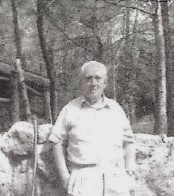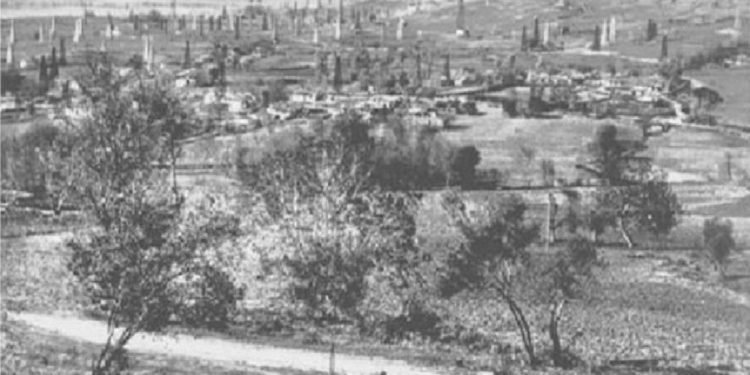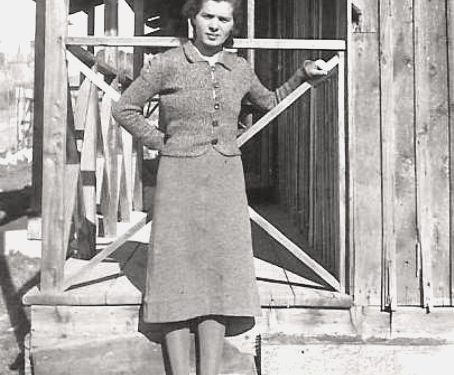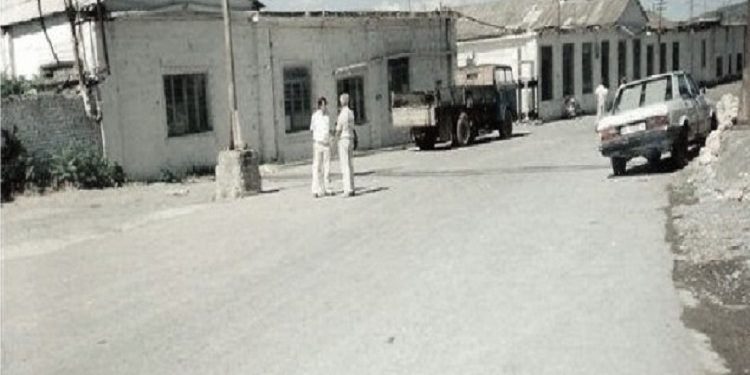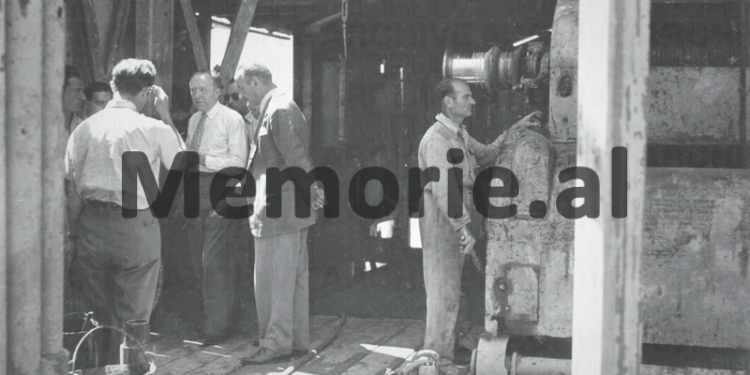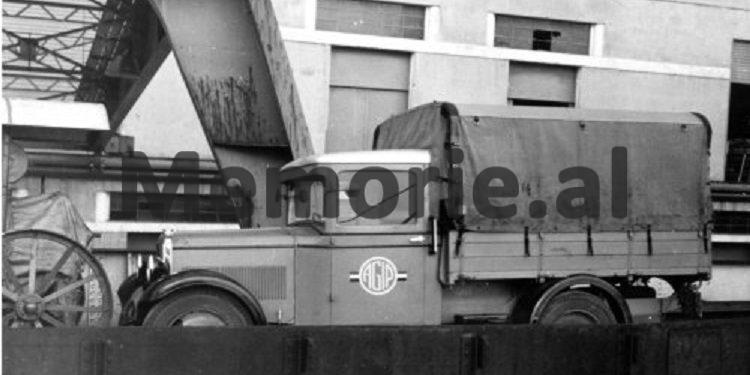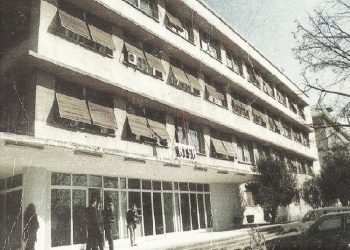By Arnaldo Canciani
Part one
Memorie.al / This first part of my memoirs, which covers a period of twenty years; 1928 – 1949, I dedicate it to all those who have lived and suffered like me in Albania, the inhuman deprivations and sacrifices of my parents, and my entire family. I extend my dedication, to many Africans forced to emigrate in search of better living conditions, to all the soldiers who were forced to fight in a foreign country for transient ideals and, many of them, have not seen their families again and are buried in a foreign country, to all those who are oppressed by dictatorial regimes and those unjustly sentenced to death, to the prisoners, to those who have suffered unimaginable torture.
PREFACE
To many of those who were deluded about a better future inspired by the doctrines of the right or the left. To Don Mario Morandi, a generous teacher and pastor of the poor and the weak, a protector of the lower classes. Dr. Antonio Mandolins, for the care he devoted to all the poorest, the miserable, the oppressed, even to those who had tortured him, my boss, Silvio Dariol, an example of professionalism, understanding, intelligence, with many gifts and great work ability.
My family
My father, Giovani Angelo Canciani (Anjul Centurion), was born in Gemona Del Friuli on November 19, 1885. Like all Friulians, he was forced to immigrate to different European countries, to find a job from which to earn a living. In 1922, during one of the rare and short periods he spent in Gemona, at the house of friends of (Boexio), he met and got to know my mother, Ida Urbani, who was born in Gemona, on October 28, 1898. After a short period of rest, my father and Peter Boezio, went back together to Sardinia, to work on the dam that was being built, on the Tirso river.
After a few months, he wrote my mother, a single, simple postcard, to ask her to marry him. In January 1923, he returned to Gemona, to prepare the marriage documents, and they got married in February 1912, at the Municipality, at first and after a few days at the church, as was the custom then. During their honeymoon, they went to get to know Floreani, the relatives of my mother and father. 10 km by train, to Majano and 5 km on foot to reach Farla. An area of Majano, where my mother finally managed to take off her shoes and heal her foot wounds, from the long road.
After a few days they returned to Gemona, where a new house awaited them, in “Via Sottocolle”, two rented rooms in the courtyard where Bozet lived, bordering the Urbani houses. And here I was born, on November 25, 1923 (Sunday at 5 p.m.). My sister Irena was born on October 11, 1925, I was only two years older than her and I don’t remember any memory of this happy event.
Repatriation
After the situation created in Italy with fascism in power, my father was forced to emigrate; in 1928, he left for Albania, to its capital in Tirana, where we arrived in January 1930. From my mother’s stories, I think we left Gemona, on the 30th in the morning and with a train that arrived in Bari, on the morning of the next day, in the evening we embarked on a motor ship which, after 10 hours, arrived in the roadstead of the port of Durrës. From here, after a few hours of waiting, we continued the road to Tirana, with a “koriere”.
The distance from Durrës to Tirana is only 38 km., but with the vehicles and with that ruined road then, it took several hours to reach Tirana; the journey lasted almost three days. My mother had never moved from her birthplace; having two small children, suitcases, various luggage’s, I cannot imagine how and what difficulty she had to overcome. Settling in a foreign country, without the slightest knowledge of the language, was certainly not an easy thing, especially for my mother.
At that time there was a Monarchy in Albania: Ahmet Zogu had declared himself King and ruler of the country, with an iron fist. King Zog was married to Countess Geraldine, a beauty from Hungary. The son Leka, was born in exile on April 9, 1939, two days after the Italian invasion of Albania. I am closing the historical parenthesis and returning to the memories of my family.
On July 10, 1931, my sister Albina was born in Tirana. In two ruined rooms it was no longer possible to live; five people slept there, in one room. We were forced to move and go to another house. It was built on a raised floor, wider than a year ago and with a small courtyard, but isolated and far from the center. My father never lost a day of work, but the salary he was paid was only enough for the family’s needs.
One morning, my mother went out to go to the grocery store and the thieves found the opportunity to “clean” the house. Five ALL, was one month’s salary, and other things disappeared, they were stolen. The robbers were arrested later, but none of the stolen goods were returned. The economic consequences that followed were overcome with difficulty. This fact forced my father to move to another house, together with the Arduino couple, a charming couple from Trieste, very friendly and good companions for my mother, who had tried and felt the previous isolation.
They lived on the second floor and we on the first floor, around the house, there is a large garden with many trees. My sister Albina, when she was one year old, got sick with gastroenteritis; medicines were not available, and could not be bought, while my father, even though he worked continuously, did not receive a regular salary; for about six months, none of the monthly installments were paid. Some shopkeepers credited us, and some colleagues, friends and neighbors, helped us.
This was a very critical and difficult period for my family and it lasted about two years. It was around this time that my sister, Irene, and I continued to grow up and were baptized. The baptism ceremony took place in the church of the nuns and my godfather was Pietero Boezo, a neighbor and friend of the family. My sister was a little lucky, as a godmother for her, one of the nuns was chosen: a countess who disappeared, without saying goodbye at the end of the ceremony.
Four years of great difficulties and sacrifices had already passed since the day of our arrival in Albania; in 1934, my father left Tirana and went to Kuçova.
Kuçova, was a small town on the banks of the Devoll river, 15 km away from the city of Berat. The AIPA Company had replaced “(F F S S) The Italian Railways Ministry” which had previously received a concession for the exploitation of oil from the Albanian government in this field. After the occupation of Albania in 1940, AIPA was put under the control of AGIP.
Since then, the work in the oil industry has had a significant and rapid growth, in parallel with it, the constructions also developed. My father worked with the “Stella” company, for the construction of houses, offices, warehouses, etc. It would take us a few months to unite the family, as it was not easy to find a house, but finally in January 1935, we also moved to Kuçova. In the lowlands of the magnificent valleys, the Devoll River flows, which the Italians also gave the same name to the place.
Construction of the village of Devoll: church and school
At the beginning of the search for oil, AIPA, (Italian Petroleum Albania Company), operated in the area known as D 4, where the first wells were drilled; there was the restaurant, offices and some wooden houses were built. Some of them were made available, to a church (Don Criseri was the first parish priest) and one for a school. A new teacher, Jolanda Silverio, taught all the students of the five elementary classes. In a fifth grade, there were three of us; Lendaro, me and Truini.
At the end of the last school year, I was presented with good grades, but I could not continue my education because; there were no other schools! My father, as a reward for the good grades I got at school, gave me a 9 mm “Flobert” caliber carbine. Albania at that time was a wild country, with unspoiled nature, with abundant hunting and it had rich fish reserves in its rivers.
To make up for the lack of education, the pastor gave us lessons on certain issues of wider use. I was also entrusted with the duty of the church clerk; for this service they gave me a small reward fee. In the church I always kept the gun ready, even during the sermon, when from the window I saw birds landing on the ivy-covered tree, I went out, I shot and I came back in time, to say “amen”! One morning I went to serve at mass, I was hungry and I ate breakfast with all kinds of food that the priest kept in a box. This is how my career as a church clerk ended.
My days go like those of a wild person: always hunting in the winter, fishing in the summer, with improvised equipment, a rod with a spear and string, to ensure a hit. I removed the bullets from the rifle cartridges and filled them with gunpowder, but one day, when I was loading the carbine, I had a flash that was my first hunting accident: I was hit in the hand and forehead, luckily, without serious consequences.
The rifle was confiscated from me twice: the first time by ing. Trisolio, who was surprised, when I was outside the enclosure complex of his hunting dogs; but his polite wife asked him to give it back to me. The second time I shot a small bird and the pellets ended up on the newspaper that a gentleman was reading in a café, sitting outside it. To get the rifle back, this time it was necessary, the intervention of my father.
One day, when I returned from fishing, I had left the fishing rod leaning against the wall, the worms not removed from the hook. My mother’s favorite rooster swallowed everything, but it did not die. On Sunday, my father and I would go fishing with small packets of dynamite. Every day for me, began with a new adventure. So, after more than two years without a headache and without responsibilities, until the end of 1937, without a penny in my pocket and without other entertainment.
1937 – Intern in Tirana
At that time, the works for the construction of a new school, hospital, and church began. Many workers and many new families had come from Italy, especially Emilia. The country had turned into an Italian island, within Albania, with many advantages and some disadvantages: fascist propaganda was very present, and the Party card was necessary for offering a job. My father did not fit into certain submissions and impositions, so he returned to Tirana again. I joined him in the fall of 1937.
I had found a place as a student, in a car workshop where vehicles and motorcycles were repaired; there was also a lathe and a foundry there. It was the only workshop in the Albanian capital, Tirana. The owners were both Italians, Mario Massarini from Piacenza and a Poli, from Trieste.
We lived in the house of Mr. Merli, who was our guest for a short period in Devoll. In his house on “Rruga e Elbasanit”, he decided to rent us a room that we shared with my father; there were no windows and we had put a newspaper to protect us from the cold.
Every morning to get to the workplace, to “Rruga e Durrësit”, I walked 2 km on foot, passing through the streets in the center of the city; I would stop with my mouth watering in front of the windows of the pastry shops, which I did not have the money to buy! In “Skanderbeg Square”, Italian songs were heard broadcast from the megaphones of Radio Tirana. A song, called “Amapola”, has remained in my memory.
It was the first time I lived away from my family, I was thirteen years old and I was still a child. I went to the workshop with great desire, but at first, to learn and I always did the apprentice’s work. It was an experience in many aspects, to be considered negative for my age, but which contributed to the formation of my character and which prepared me for the later trials that I had to overcome. Fortunately, this remains only a faint memory of this period, and I cannot remember even the places I used to eat.
A clear episode has remained with me, which made me suffer. It was carnival day, and I met a certain Merla on the street, with whom I had attended elementary school until the fourth grade, and he told me that a letter from my mother had arrived at his house. Worried to read that letter, I traveled two kilometers, with a heavy bag that she had sent for us. The letter was a bad joke by an unknown person. In the bag, there were three bricks.
Year 1938 – At AIPA.
I had spent six months in Tirana. Life forced my father to solve problems: he could not follow me, so he decided to bring me back to Devoll, to my mother. There were no schools above the fifth grade of elementary school, meanwhile the management of the AIPA Company, had a conflict with the employees who had children of age, who had the opportunity to enter as students, being offered jobs in different sectors; some of my friends, meanwhile, had been hired.
I had just turned fourteen, the minimum age to enter the world of work. Dr. Akili, the head of the central office of the personnel, I submitted a request for employment. It was not easy, my father was not a direct employee of the company and he was also considered an anti-fascist. Leaving the office, I met ing. Trisolio, the deputy director, who was a man of a firm character, but of sound principles. He briefly listened to my requests, and he took me from the central office and I was hired.
On May 30, 1938, I started working as an apprentice in the workshop; I joined one of the most qualified workers, Silvio Dariol, who worked on a milling machine, a good fitter, also a mechanic, he also took care of the maintenance of various plants on the construction site. They called him “master”, for his lessons at work, his example of honesty and seriousness. For me, it was a lucky thing that I met him and worked with him for several years.
In the first year of learning the profession, I had created a very good feeling with my teacher Dariol, who was pleasant, intelligent and approachable. I liked the work, I followed the lessons carefully and I progressed in learning, but I was not paid. The first year of internship work, was not compensated in any way by the company and the working hours were heavy, ten hours a day, but at least for us little ones, Saturday was considered a day off, like holidays.
The workshop occupied a large area divided into departments, reception, offices, and a large courtyard. The shed on the right, 120 meters long, was divided into small departments, the machines that were used, the fitters and the motorists. On the left in the same way, in the divisions were the carpenters, the blacksmiths and the welders. Between the two buildings, a wide corridor, led to a variety of equipment and tools. On the border on the right side, were some other sheds, which were used as depots. On the opposite side of the road that passed along the front of these structures, there was a small train station with rails, which connected the different departments and connected the arms that reached all the wells. The locomotives, wagons and rails, were smaller than in normal trains.
By the middle of 1939, the management of the company, based on the merits earned and on his final judgment, informed me of the level of my first salary. (5 ALL). This was perhaps a tenth of the salary of a qualified worker, but for me it was a great pleasure. My father’s salary, when he came, was smaller than what I was getting. My mother, who washed and ironed, earned some money, even though my help was small, it contributed to the modest family budget. Memorie.al




